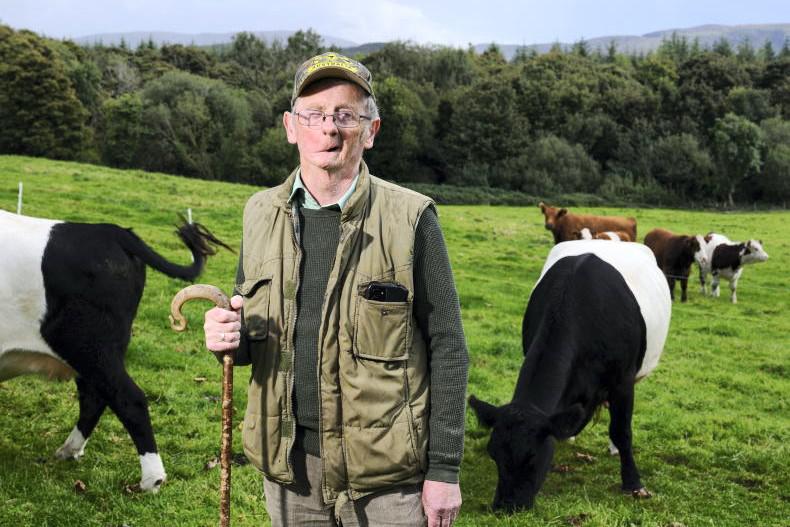Unsurprisingly, the COVID-19 pandemic has brought about an increase in the number of people wishing to make a will. The upsurge in demand has spurred the Law Society of Ireland into issuing new guidelines to its members. Traditionally, a will has been signed in the solicitor’s office in the presence of a witness but social distancing, quarantine and illness now prevent this.
It is now advised that the first stage of the process – the taking of “instructions” – happens over the phone. Once the will is drawn up and fully agreed, there are a number of advised ways to ensure that it is signed and witnessed correctly to ensure that it is legally binding.
The guidance issued by Law Society of Ireland president Michele O’Boyle outlines that a will must still be signed, or their signature acknowledged, by the person making the will (testator) in the physical presence of two witnesses. These two witnesses must then sign in the presence of the testator.
Attending at a solicitors office is currently not possible during the period of restriction
Both witnesses have to be present when the testator signs and must also sign in the presence of each other, but it is recommended that a suitable distance be maintained at all times.
Mary McKeever, solicitor with Eugene F Collins, who specialises in the drafting of wills, said that “clients will be assessed to determine their specific requirements and the first thing a client should do is make contact by telephone or e-mail to decide on the best option for them”.
Attending at a solicitors office is currently not possible during the period of restriction introduced by the Government on 27 March. These restrictions are in place until 12 April so this is subject to change thereafter.
“Solicitors who decide to attend people’s homes can witness the signing of the will through a window of a house or a car but, at all times, must maintain a social distance from their client and the witness.
The law does not take into account your wishes if you do not make a will and the estate will be distributed according to the rules of intestacy
“There are also options for a solicitor to supervise the signing of the will by two witnesses and the testator via Skype or some other electronic video-conferencing technology. Although two witnesses are still required in this scenario, the solicitor would be in a position to swear an affidavit of attesting witness, if necessary.
Making a will is important to ensure that in the event of the landowner’s death their wishes, in relation to the farm, are carried out. The law does not take into account your wishes if you do not make a will and the estate will be distributed according to the rules of intestacy.
Landowner dies without making a will (intestate): remaining spouse, where there is no children, will get the entire estate. Landowner dies but is survived by a spouse and children: spouse will get two-thirds of the estate and the remaining one-third is divided equally among the children. Landowner has no spouse but has children: estate divided equally among the surviving children. Landowner has parents but no spouse: estate divided equally between parents or if only one parent survives, the estate is given entirely to one parent. Landowner has siblings only: the estate is shared equally among them, and the children of any deceased brother or sister will take his or her share. Landowner has nieces and nephews only: the estate is divided equally among those who are still alive. Only other relatives: estate is divided equally between the nearest equal relationships. If no blood relatives are traced: estate goes to the State. Read more
Helplines to take note of during COVID-19
Losing the power to decide
Unsurprisingly, the COVID-19 pandemic has brought about an increase in the number of people wishing to make a will. The upsurge in demand has spurred the Law Society of Ireland into issuing new guidelines to its members. Traditionally, a will has been signed in the solicitor’s office in the presence of a witness but social distancing, quarantine and illness now prevent this.
It is now advised that the first stage of the process – the taking of “instructions” – happens over the phone. Once the will is drawn up and fully agreed, there are a number of advised ways to ensure that it is signed and witnessed correctly to ensure that it is legally binding.
The guidance issued by Law Society of Ireland president Michele O’Boyle outlines that a will must still be signed, or their signature acknowledged, by the person making the will (testator) in the physical presence of two witnesses. These two witnesses must then sign in the presence of the testator.
Attending at a solicitors office is currently not possible during the period of restriction
Both witnesses have to be present when the testator signs and must also sign in the presence of each other, but it is recommended that a suitable distance be maintained at all times.
Mary McKeever, solicitor with Eugene F Collins, who specialises in the drafting of wills, said that “clients will be assessed to determine their specific requirements and the first thing a client should do is make contact by telephone or e-mail to decide on the best option for them”.
Attending at a solicitors office is currently not possible during the period of restriction introduced by the Government on 27 March. These restrictions are in place until 12 April so this is subject to change thereafter.
“Solicitors who decide to attend people’s homes can witness the signing of the will through a window of a house or a car but, at all times, must maintain a social distance from their client and the witness.
The law does not take into account your wishes if you do not make a will and the estate will be distributed according to the rules of intestacy
“There are also options for a solicitor to supervise the signing of the will by two witnesses and the testator via Skype or some other electronic video-conferencing technology. Although two witnesses are still required in this scenario, the solicitor would be in a position to swear an affidavit of attesting witness, if necessary.
Making a will is important to ensure that in the event of the landowner’s death their wishes, in relation to the farm, are carried out. The law does not take into account your wishes if you do not make a will and the estate will be distributed according to the rules of intestacy.
Landowner dies without making a will (intestate): remaining spouse, where there is no children, will get the entire estate. Landowner dies but is survived by a spouse and children: spouse will get two-thirds of the estate and the remaining one-third is divided equally among the children. Landowner has no spouse but has children: estate divided equally among the surviving children. Landowner has parents but no spouse: estate divided equally between parents or if only one parent survives, the estate is given entirely to one parent. Landowner has siblings only: the estate is shared equally among them, and the children of any deceased brother or sister will take his or her share. Landowner has nieces and nephews only: the estate is divided equally among those who are still alive. Only other relatives: estate is divided equally between the nearest equal relationships. If no blood relatives are traced: estate goes to the State. Read more
Helplines to take note of during COVID-19
Losing the power to decide









SHARING OPTIONS